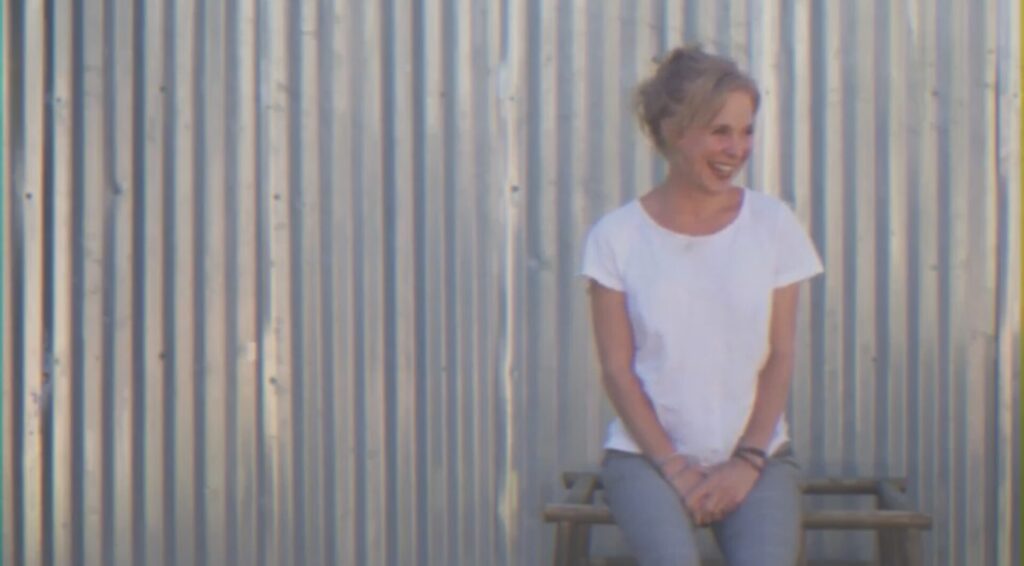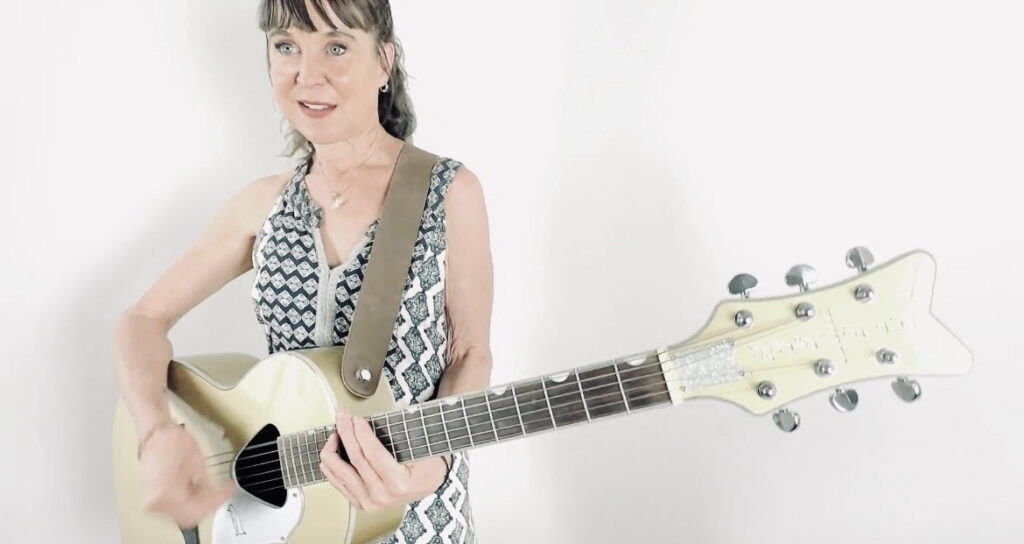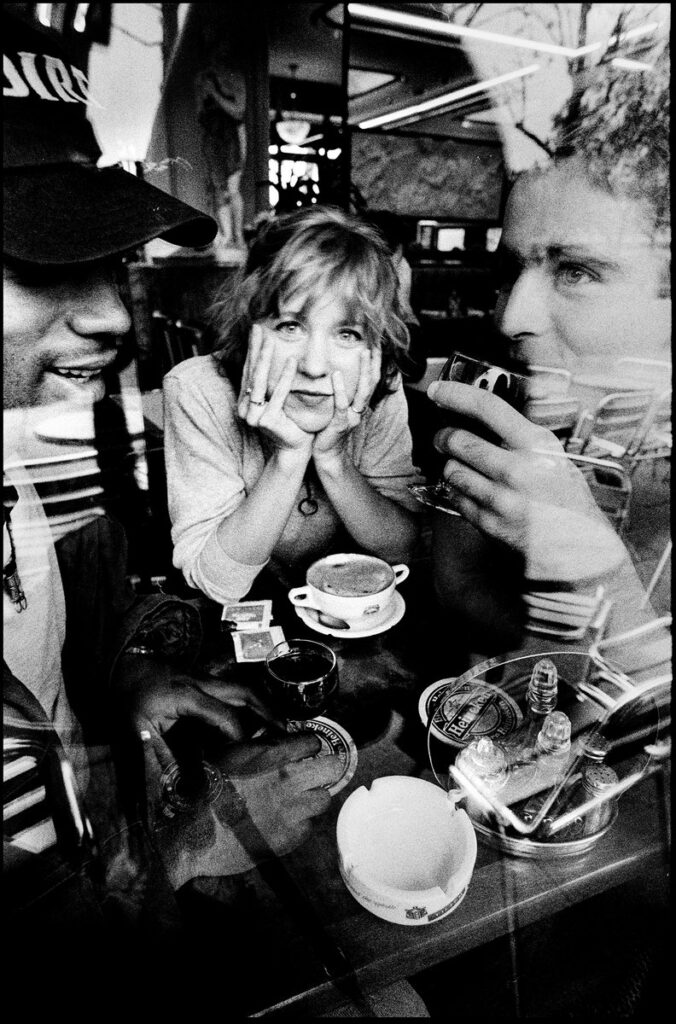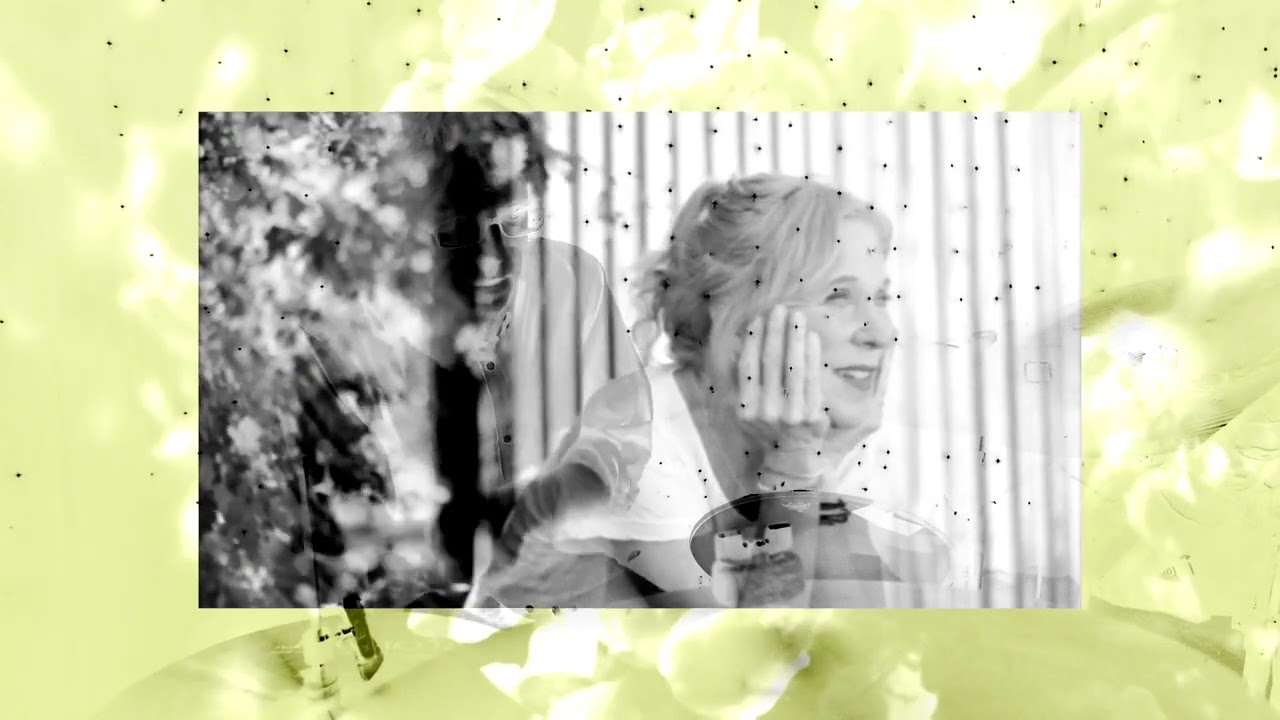Having been a Throwing Muses fan since I first saw them play with Pixies some 37 years ago at the Town and Country Club in Kentish Town, it was with some excitement that I received the news that the band would soon be releasing a new record, Moonlight Concessions, particularly as their extensive UK tour would also include a date in Hastings, my new home since February 2024.
Employing a different sound palette to 2020’s noisier Sun Racket, Moonlight Concessions offers an evocative collection of vignettes from everyday life that impact in a similar way to the understated and deceptively simple prose of Raymond Carver. Cello, strings and overlaid acoustic guitars imbue the music with an atmospheric presence that matches the directness of the stark but empathic lyrics. Yet the consistently hardworking Hersh again manages to carve out a distinct sonic identity that marks the release apart from her other (also excellent) solo material and work with her noise rock trio 50 Foot Wave.
Hersh has in the past said that during her earlier years as a musician, songs would seem to arrive fully formed as a consequence of a dissociative disorder. Since integrating both sides of her personality via successful EMDR therapy, Hersh stresses the importance of a creative process that transcends the ego, humorously adding: “This process that we all are [as humans] is hard to keep tabs on. When we try, we screw up. So, I’d rather just keep saying the good songs are not me, while the bad ones are definitely me.”
Hersh says that the process this time “took about three years. Usually, it’s longer. I recorded 30 or 40 songs, which is not unusual. Then I pared them down to the most elemental form, to this paragraph that is a collection of songs. If it’s your blue period, then you just gotta keep painting in blue over and over again until it forms itself into something that you learn from.” She again stresses that the writing comes from somewhere bigger than just the mind, adding: “I would probably say the same thing about my children. I didn’t invent their fingernails or what they say.”
You mentioned colour. Do you still think in terms of colour when you write music?
Kristin Hersh: Absolutely. Everything is colour. People still have doubts [about synaesthesia]. There are a lot of musicians who also claim that there’s no such thing as inspiration. A lot of writers and painters too. They’re just jealous. They’re baffled that sometimes they suck and sometimes they’re OK. It can be really confusing, because in the music business suckage is success! This activity that we engage in, it necessarily has to keep your mind and your ego out of it, or you’re going to make a dead body. The people that say there’s no inspiration, they’re just working on craft – absolutely, hone your craft, love your instrument. Fall in love with it. Lose time, lose self. But what happens when you’re good? That’s inspiration. I don’t care what they say.
Did the mood of the album appear over time, or did you have something in mind when you began?
KH: I can learn as I go, but if I had a vibe in mind, it would fall apart. I record so many songs so that I can just stare at the speakers and let the musical moments hit me. This one was honed to only nine songs. We’ve done records of 30 songs because it was like, “this has to work this way”. This time, it wanted to be very clean and clear and percussive and simple. Not simplistic, but simple in a human way. If I started dancing around the studio, I knew that it was working. And if I stopped dancing and just squinted at the speakers, I knew it wasn’t working. Sometimes you have to kind of crucify yourself. If it sounds pretentious, then you have to take that bullet. And if it sounds really unpretentious, like this one, then you have to take that bullet! Gravity is a truism in music. You can’t apply it to yourself, you can’t think that you’re important. Yet your process must engage with that kind of gravity and that kind of depth, or you’re insulting your listener.
Does the album title, Moonlight Concessions, have any specific meaning, or do you want to keep it mysterious?
KH: At Moonlight Beach in Encinitas California, there’s a concession stand. It’s really beautiful. I wrote a lot of the songs there. The cover art is all at Moonlight Beach. It’s my son Bodhi’s dog on the cover. We were living in our truck at the time. We had to escape a stalker landlord and we didn’t have a lot of money and we had to lose almost all of our belongings. We had to live in our truck while we tried to find a place. We ended up living in the ‘Junky’ Days Inn, with a bunch of people who were never gonna’ leave, and the staff from Tijuana. It was a very moving time but we didn’t know that it was going to end, we just sort of hoped and it did. A quarter of the nation’s homeless are in California. When we moved out there, we were really struck by the homeless. We made friends with them. We visited them every day. Bo called them our ‘burrito brothers’ because one burrito could feed them all day. So, we’d bring burritos and we’d listen to their stories and we’d sit by the railroad tracks which are on the ocean there and bring them donuts and listen to more stories.

This informed the record, the stories and the sense of human connection?
KH: I learned from these people and their stories. They’d had the inspired moment, which was sometimes something horrifying, and they would bring it to this kind of entertainment. We’d be sitting in a circle, everybody eating donuts and they would entertain. This process, I’d liken it to the process of creating music, since most of these songs were written at that time on that beach, and I think this is why there’s something you want to dance to about them, which is not something someone’s ever said about Throwing Muses! There’s definitely a humanising function in places with poverty. New Orleans [where Hersh spends part of her time] runs on the concept of redemption through sin. So, everything is forgiven before you even begin. I live pretty clean and I’m pretty pure of heart but I can’t stomach the places where hypocrisy runs the show. I get real ill about that. And here [in New Orleans], with all the degradation, and it’s the murder capital of the country, it’s tough and it’s rough and yet it’s so kind. It’s where I come for my familial information. This is family and they treat you like family. You can’t get away with anything and yet they don’t call you out on anything either, you’re already forgiven.
There’s a lot of cello on the album, which is Pete Harvey, who was also on Clear Pond Road. Is he going to be on the tour?
KH: He’s going to be doing the whole thing, I believe. He’s really the star of this record. There’s an accompanying release called Moonlight Confessions, which is a Rough Trade exclusive. It’s the same songs with alternate versions without cello, before they came to that percussive clarity. It’s all played faster, much more electric, more of my leads. They’re both cool, but I was just so enchanted with the depths of these acoustic instruments that the cello and the acoustic guitars are layered to the point where they’re almost unrecognisable as guitars. I put foam under the strings and I put duct tape on top and just chug, chug, chug, chug, all of these layers of percussive melody. It’s almost as if the acoustics are reflecting the lyrics and the lyrics are reflecting that chugging, percussive energy. If it were only that, it would smooth out and you wouldn’t get the impression of musculature, and so the cello brings that back, it brings out the melody, it brings out the musculature. I record in a horse stable where you can hear all these horses booming through the wall. It’s a constant reminder to never lose the big hollow power of muscles. Electric guitar can’t do that because it’s through wires. You can try to mimic it through pedals and amps but really the power is in the body.
The first two tracks the album opens with are really strong. The first track, Summer of Love, has the line: “Finally life as it should have been”, does that have any particular meaning for you?
KH: I’m getting there. Songs are always a little ahead of me. I wouldn’t colour it as comfort, safety or happiness necessarily, but as a sort of impact. Life as it should have been, life as it should be, is that mud wrestling that we do, the absolute hereness of Us. As a songwriter, it plays into one’s humanity, which is why I’ve always argued against the pop star, the machine that tries to make you rich and famous – the two best indicators that you’ve missed the point entirely. You can’t possibly write a song if you buy into that kind of safety. So, the full-on humanity of the mud wrestling and the fear and the anger and the worry and the hunger and the speed and the boredom, like everything that we live, I would say that’s life as it should have been. And we can miss the point, all of us!
A lot of the PR I’ve read for the tour says things like: “Throwing Muses’ 2025 finds Kristin Hersh going back to where it all began, with nearly 40 years of history behind them”. That’s what PR does, but should fans expect some old songs? A bit of a retrospective?
KH: We always play old songs. We play songs that are unheard. We don’t orient to releases. We play music because that’s what we do. Whereas most people in the music business work the other way, which is ‘what do people want to hear, let’s work that in’. Some of the old songs will continue to live and they’ll go out into the world, they’ll come back and they’ll change. We don’t know the difference between an old song and a new one, unless it’s dated, which means it was a mistake to begin with.
When you were with your trio at The Garage, a few years ago, at the end, you played ‘Shark’ from Limbo, which was really great. I didn’t really know Limbo at the time but I’ve gone back and listened to it a lot and now it’s one of my favourites. Along with the first two, The Real Ramona and the self-titled 2003 album.
KH: Limbo is one of my favourites too. I think my favourite is probably Purgatory/Paradise. Limbo was a really magical sort of orientation, because we had already said “fuck you” to Warner Brothers. With The Real Ramona, I broke up the band, and said, “I’m never going to act the way you want me to act” and “I’m never going to give you the fucking radio shit you’re asking for, because music is spirituality”. I’m not going to lie with music. A couple of times they’d say, “we’re going to drop you, you won’t be able to pay your bandmates anymore,” so I’d go like “OK, here’s a piece of crap” and that’s as close as I got to giving them what they wanted. We did University, which was Throwing Muses’ biggest record ever, that was when we were like “fuck you”, which is so great. I traded Hips And Makers, my first solo record, for our contractual freedom from Warner Brothers, so Limbo was our first record free of them.

I wouldn’t say it’s commercial, but it’s still a very accessible record. Your vocal is really good on it, the songs are all excellent. If I were to suggest one of your records to somebody who doesn’t know your work, I’d probably suggest Limbo, especially the track ‘Shark’.
KH: No kidding, that’s great! I like to hear that. I always thought of us as a pop band, but nobody else seemed to!
How does your Future Of Songwriting book distil your thinking on your songwriting process, which has obviously developed over some time? I like the analogy of a good song being like a good joke.
KH: I envy my comedian friends. The comedian character in the book is a combination of maybe three different people. I have always envied their ability to measure their work’s response. It’s measured in laughter obviously, whereas musical response, they only measure the dumbed down aspect. It’s hard not to envy the fact that they know if they have a hit in a few seconds. If you consider what stand-up is, it’s supposed to mimic real life, where in real time, you capture what’s ludicrous, which is usually helping us laugh at ego, which is really important. Two of the comedians in the book are actually comedic actors, so they apply a serious amount of tragedy to what they do. There’s more tragedy to the ego orientation than there is anywhere else. That’s where all cruelty comes from, the misapprehension of identity. My relationship to songwriting, I can only compare to trying to recreate that weeping. We weep for all the cruelty that ego causes and we try to live next to it. That would be the human condition. If you can laugh through that, if you can dance through that, then we’re doing the best we can.
That might sound depressive to some, but it transcends that, because when you get that human connection, that’s when you feel alive. It’s only when you’re separate from things that you think, OK this body is born and will die and you feel sorrow for that, but actually we’re much more interconnected than that.
KH: It can be really, really difficult here and when you live that difficulty, you align. It can be wonderful here too but you need to parse the elements of wonder in that case. Is it because you’re safe? Is it because you’re lucky? Shift your definition of wonder and be here with all of us.
Throwing Muses release Moonlight Concessions on 14 March via Fire Records and embark upon a 23-date tour of Europe and the UK from 12 May to 5 June.



